The powerful emotion reflected in Joulong’s young face and eyes is palpable. And for a good reason, he is about to enter an important chapter in his life. He is about to be ordained as a Buddhist monk novice.
In Laos, as in other Buddhist countries, men can be ordained as novice monks to live the monastic life for a certain period. It is also popular for children and teenagers to live as monks for a couple of months, during the summer holidays, as a means not only to learn about Buddhism but also to practice self-control and learn how to meditate.
By a stroke of chance that deserved another article in itself, we were invited to the ordination ceremony of Joulong and Sengphet, nephew and uncle, nine and forty-five respectively. For Joulong this would be a kind of rite of passage, to grow into a teenager and learn some discipline, as his mother Davone told us. She further explained that she was actually his foster mother. She is in the process of adopting Joulong, who is one of the many children of a very poor family from Davone’s village, in the countryside. ‘He asked me several times if he could come with me to the city and wanted to join a temple here in Luang Prabang. So we thought he could join the Buddhist monks now, during school holiday’, she told us.
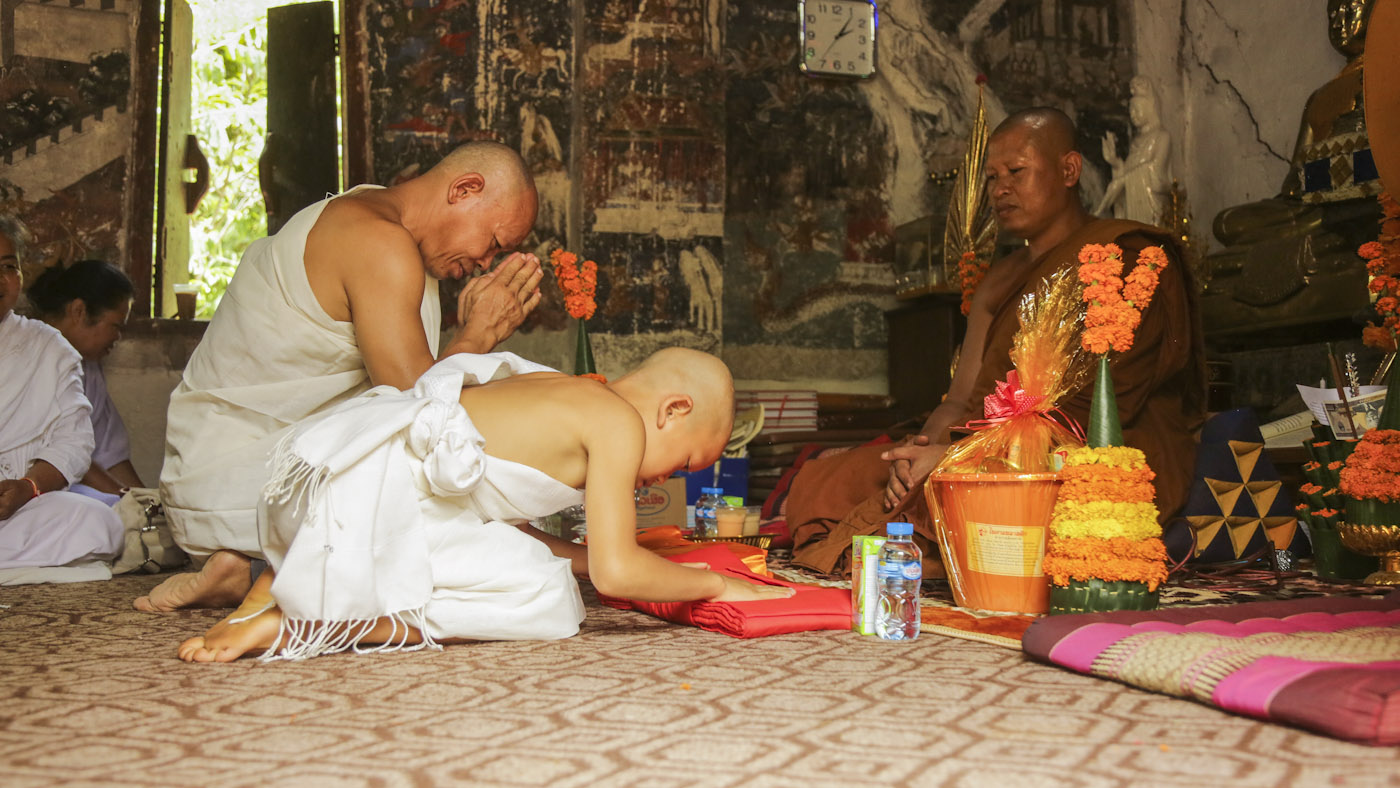
Having a son entering the monkhood is considered as a blessing for the family. Part of the merit that a novice or a monk acquire during monkhood is dedicated to his parents. When a novice is married, the family needs to share that merit with his wife. For that reason, families are keen on having their children going to the temple, so they get all the merit for themselves.
Part of the merit that a novice receives is dedicated to his family.
Becoming a novice or a monk is well regarded in Lao society. Men, especially, get a higher status after having spent a period of their lives in the temple. They will be addressed as ‘Thit’, a polite form that derives from the word ‘Bundhit’, which means a learnt man.
For impoverished families, having a child sent to the temple increases their chances of having their sons educated, since the temple provides, among other things, schooling. On top of that, these families will also have one mouth less to feed, which further eases their burden financially.
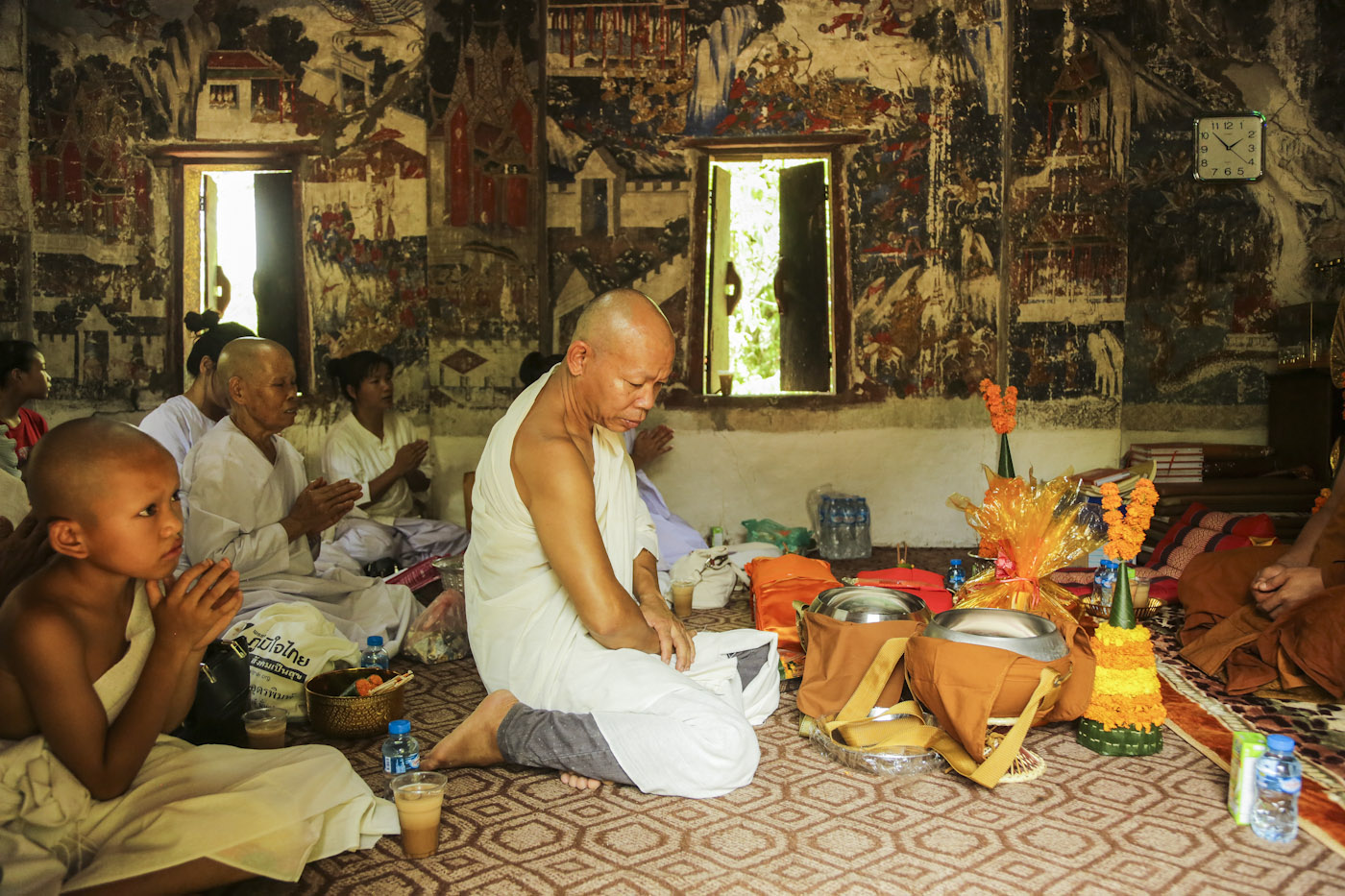
The ordination ceremony takes two days. On the first day of the ceremony, the family gathers at home to feast together. On this occasion, the future novices have their hair and eyebrows shaved, as a symbol of letting go of the material world. Hair razing also implies the wish to eliminate vanity and serves practical hygienic purposes.
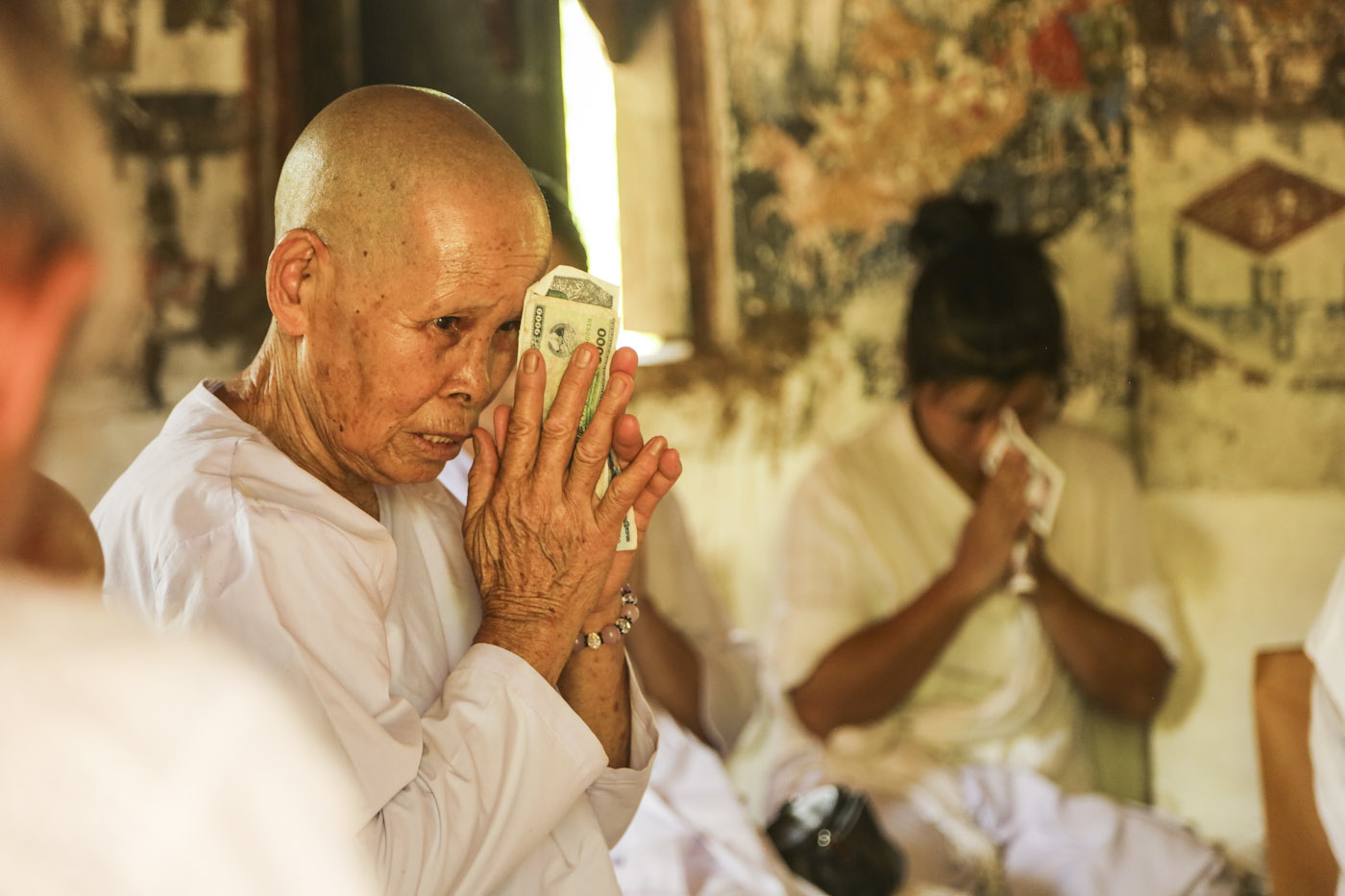
The second day is celebrated in the temple, and that’s when the official ceremony takes place, lead by the abbot monk. Joulong and Sengphet were dressed in white robes, a symbol for the rebirth that was about to happen. A series of rituals succeeded, with the attending guests presenting their offerings to the temple and the monks, while iced-coffee was distributed to chill the entire party. How thoughtful!
Finally, the time came for the most important part of the ceremony, when the novices renounce the worldly goods and desires, repeating the monkhood vows. These vows were taken in the Pali language (the liturgic language of the Theravada Buddhism), which they obviously didn’t understand and had difficulties in replicating. This turned the solemn moment into a funny instant, with everyone laughing, including the abbot.
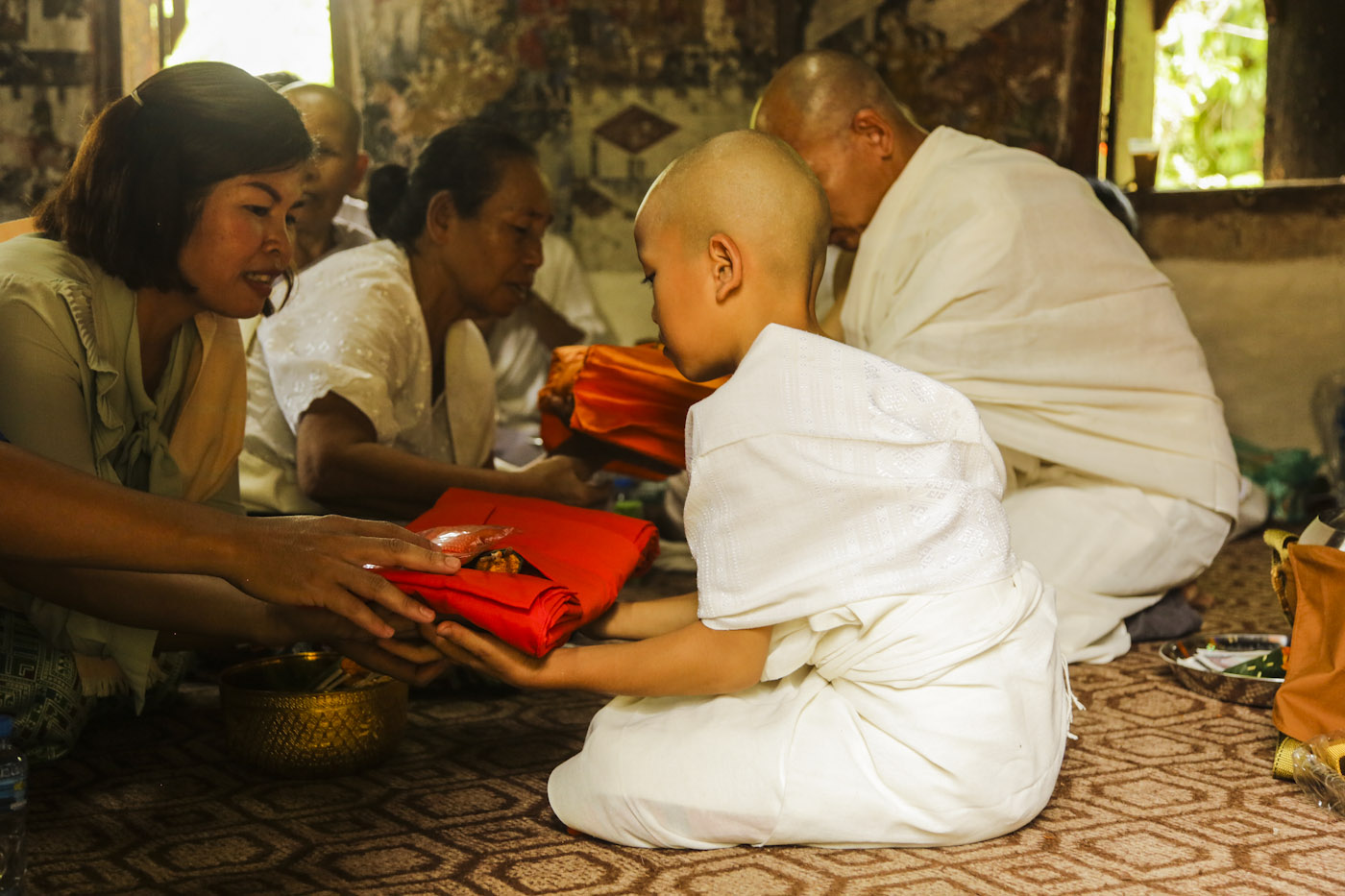
Subsequently, the family handed them the few belongings that would accompany their monk lives from that moment on, namely three robes, the alms bowl and a few other essentials for the monastic live. After taking their vows, they both went outside to change into their new saffron robes – an easy task for a monk, but which wasn’t self-evident for them, as beginners. A fellow monk from the temple was ready to help them change into their new outfits.
At the end of the ceremony, the novices still had to repeat the ten precepts that will regulate their lives as novice monks, which include: not killing living things, not stealing, remaining chaste, not lying, not taking any food after noon, not singing, dancing, playing music or attending entertainment programmes. Nobody sait it would be easy!
The ceremony ended with a pilgrimage to the top of the hill where another smaller temple was located, where the family lighted some more incense sticks and made more offerings.
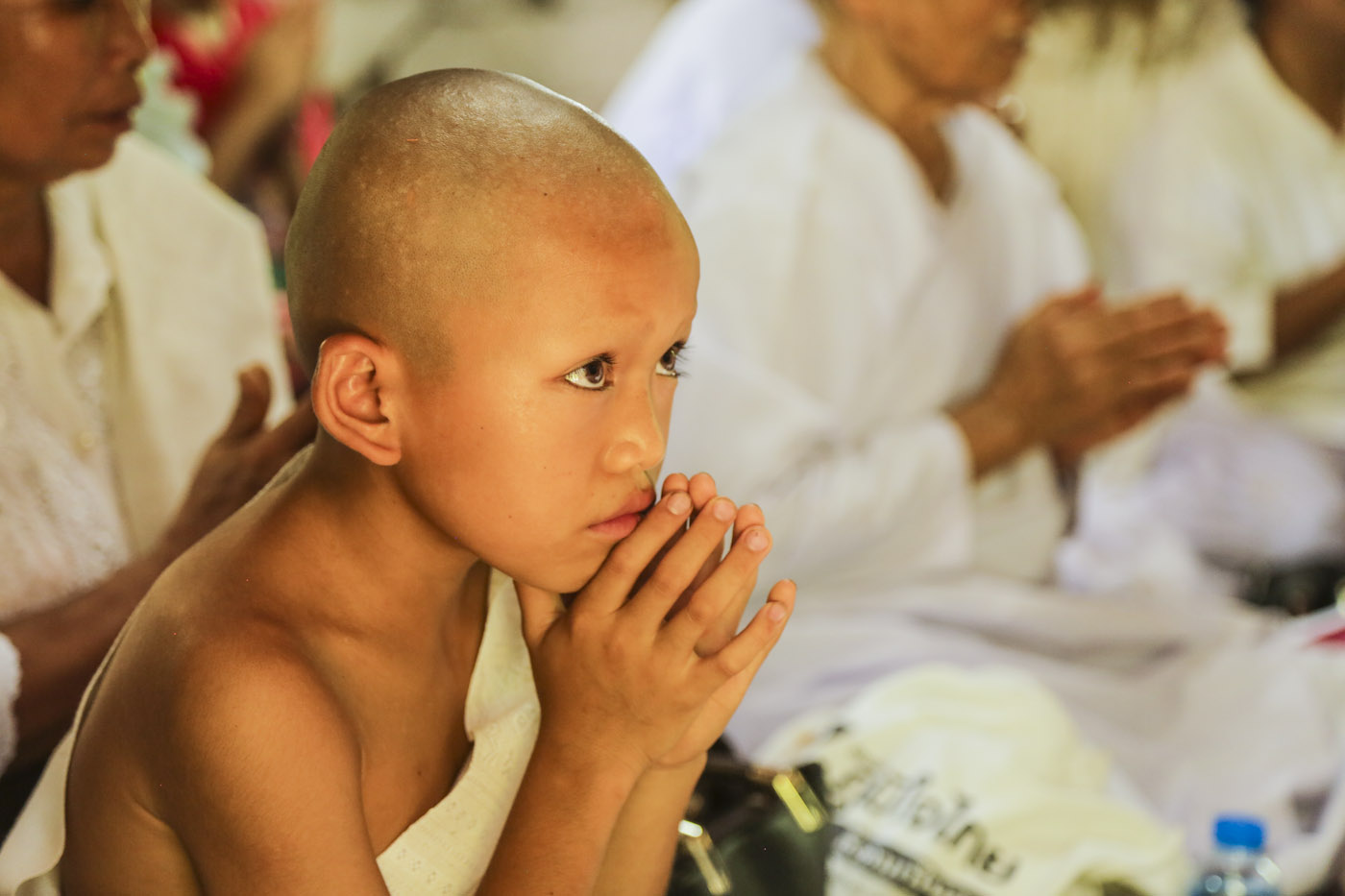
When we left them, we were thankful for having witnessed such an intimate ceremony. We could see that Sengphet, who is a mature married man, expected this experience to be an important moment of retreat and meditation to help his inner self grow. As for Joulong, he still looked overwhelmed with everything that had happened in the last two days. But we knew he would be fine, because he has a caring family nearby. When we asked Davone for how long they would stay in the temple, she replied ‘It’s up to them. They are both free to return to civilian life whenever they choose, and no one will question or challenge their choice.’
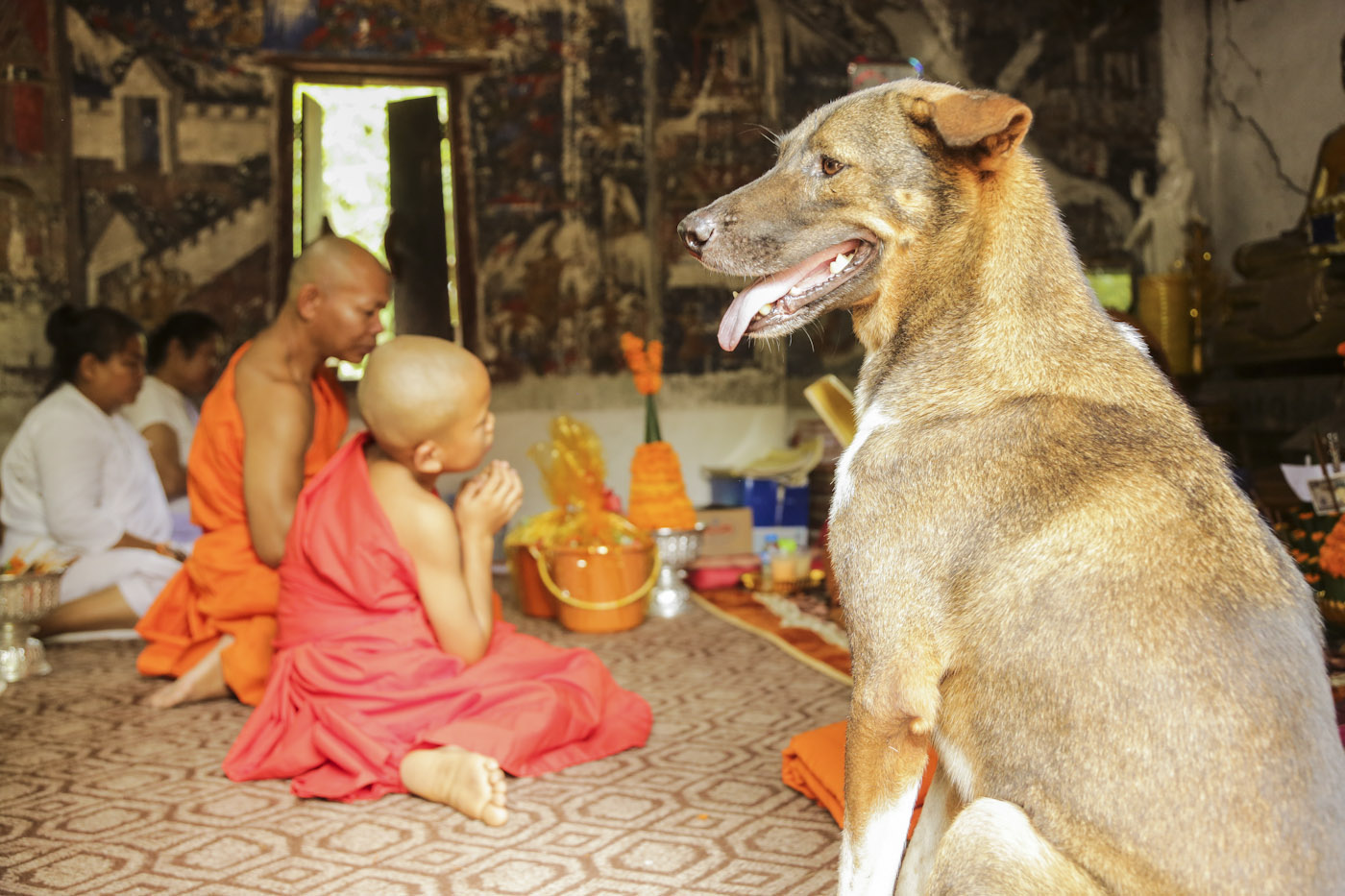
After having lived in Laos for a couple of months, we couldn’t help but wonder if Lao famous laid-backness had something to do with the fact that most men spend at least a period of their lives in a temple, living under the precepts of Buddha. We think there is no coincidence in these two facts. And we wished, that we too in the Western world encouraged our people, be it men or women, youth or elderly, to switch off, every now and then, from the hustle and bustle that is imposed on us daily…
>> Discover our magazine about Laos
Pin For Later
Click one of the images to save it on your Pinterest


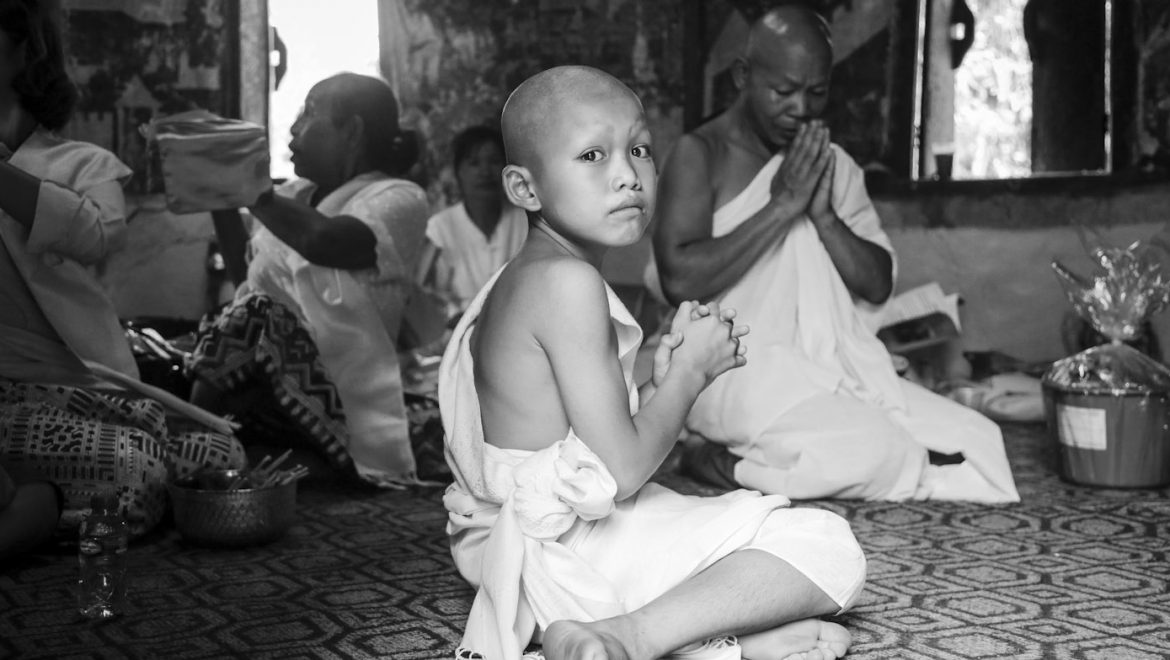
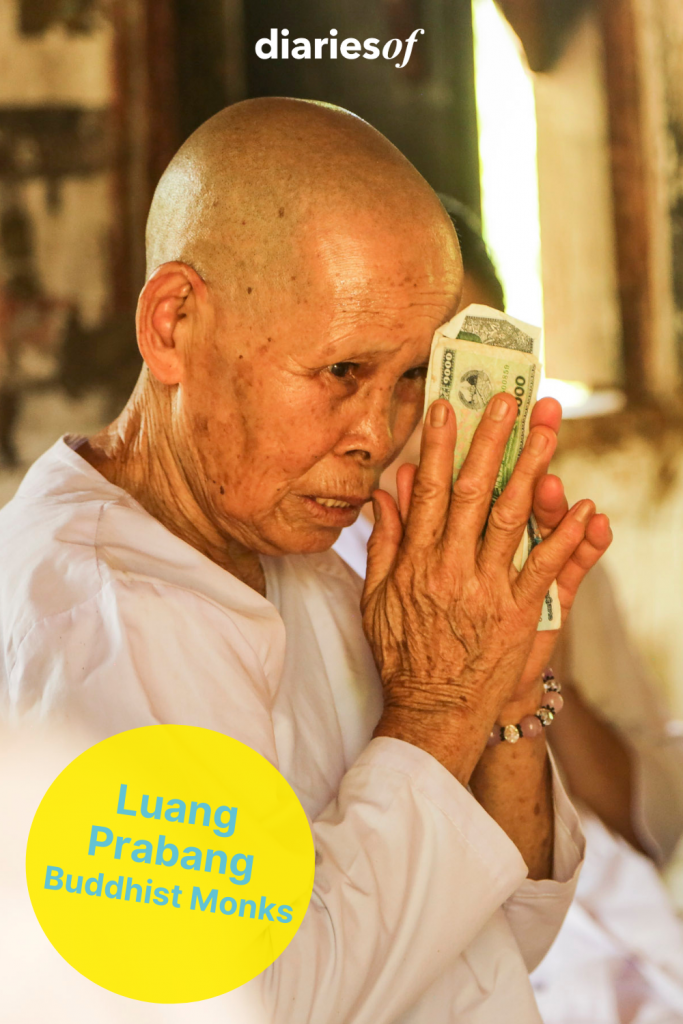
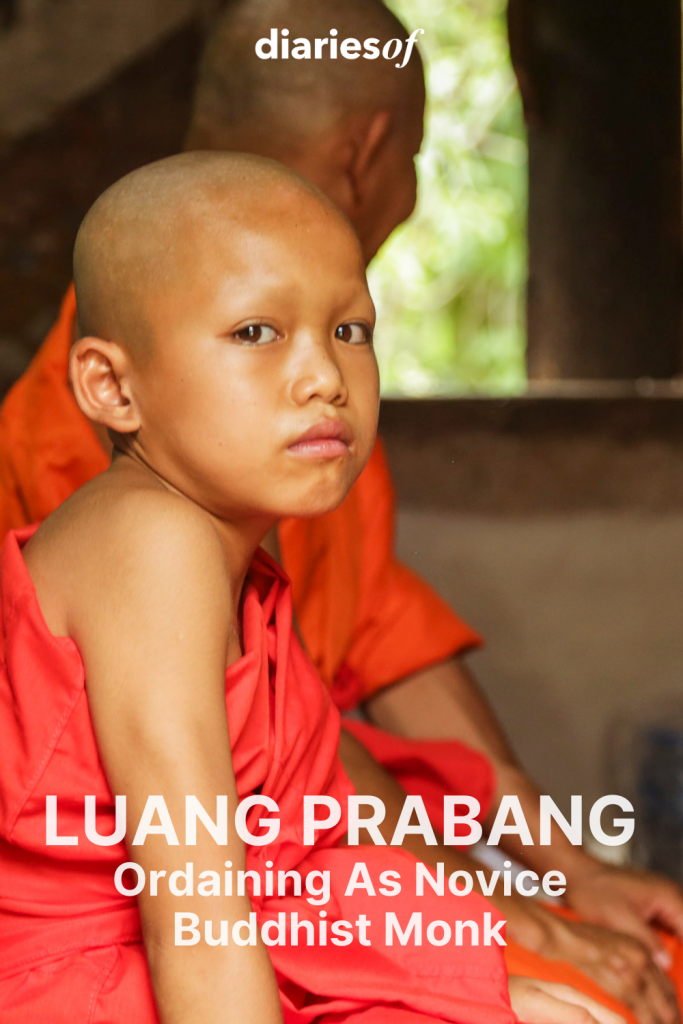
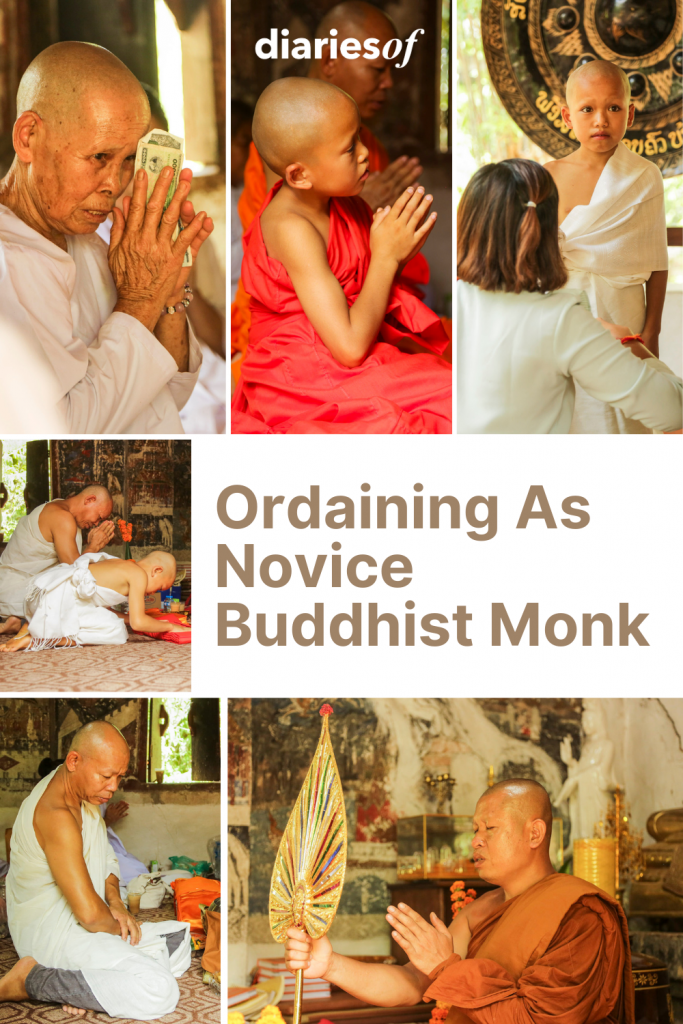



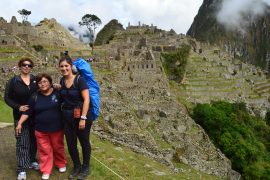

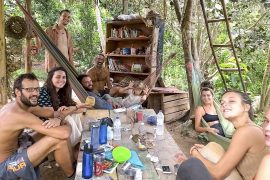
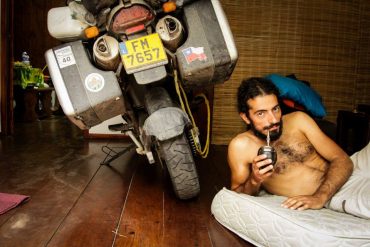

So interesting! And what a privilege to have been invited to this ceremony
Thanks Mariana, yes it was indeed a unque experience! We were very lucky!
What a beautiful story to read Anabela.
Thank you so much for sharing!
Thank you so much for your kind feedback Inês! We really appreciate it.
We are very fortunate to have two Laotian-American grandsons through the marriage of our daughter to a refugee child accompanying his family on their escape from Laos near the end of the Vietnam War in the early 1970s. Our grandsons are now in their early 20s and are true treasures in our lives. This story gives us a small insight into the rich heritage which their father (as a small child, siblings and their parents) were forced to escape.
Thank you David for sharing your experience. We hope one day you and your grandchildren will get the opportunity to visit Laos